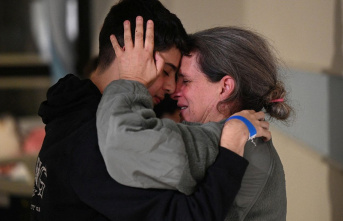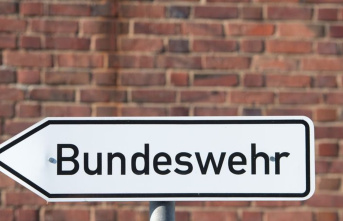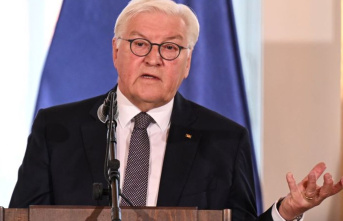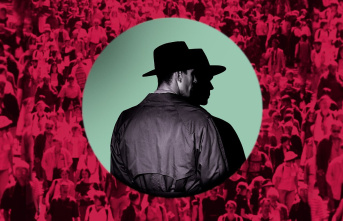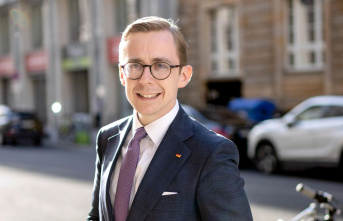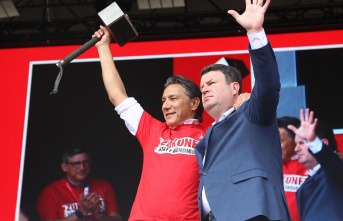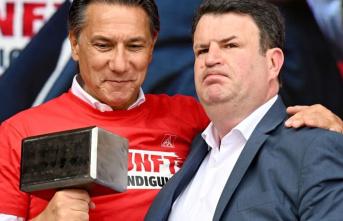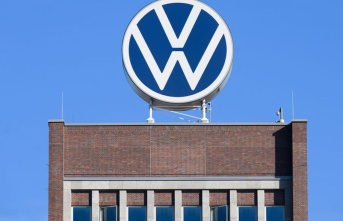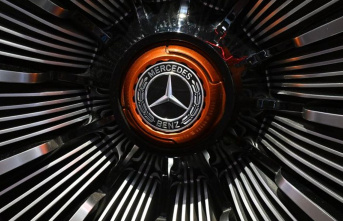Deutsche Welle: you have taken a few days ago, the office of President of the European court of human rights (ECtHR) in Strasbourg, wakes up in the 47 member States of the Council of Europe on human rights. This is a change of staff in difficult times. What is the influence of the Corona of a pandemic, the work of your court?
Róbert Spanó: I think it is important to see that in these turbulent times, this challenge is an opportunity. We see that many people reflect on the basic principles. You understand the value of democracy or the value of the rule of law. It is the time for solidarity and the return to the essential roots. The court is part of this scenario. (...) Since mid-March, we feel a practical impact on our work. Through the use of modern technology, due to extremely good planning and the cooperation of the judges and the registry, we were able to keep the ship above water. Now we come in a second Phase, where we will see how we use the new tools in the future.
do you Think the pandemic will change the applications to the court and the contents of the procedure? Will complain to the people about the actions while the output constraints?
Yes, this is predictable. It is quite clear that the measures affect the right to life and to privacy, the right to freedom of movement, the right to Assembly. People who see themselves affected, you must first call your national courts, and the courts exploited, if human rights are affected under the Convention. But at the end of the road to Strasbourg is open to the peoples in Europe. I suppose, whenever there is a crisis in society, then there is also a tension between individual Rights and the public interest. This is the core of the Convention on human rights.
The court is notorious for major traffic jams in the process. They currently have about 60,000 pending cases. Why is this so? Where is this enormous Overhang?
The answer is not simple. The court is for 47 States and about 800 million people. The area of competence is so very large, which leads to a lot of cases. The access to the court is very simple. The procedure is free of charge. It is easy to apply and the requirements for the admissibility of proceedings are not very high. In 2011, we had 160,000 of open procedures. Through this reform, we have pushed the 60,000. There are a number of very complex and intensive cases, which is in the thousands but still remains. We have only limited resources. 47 Judges, 300 Prosecutors, 350 Skilled Employees. Therefore, all of this is quite cumbersome.
Russia, Ukraine, Turkey and Romania are the countries from which the most cases come. This is a sign that the justice systems in these countries do not operate reliably or the people distrust them?
I can't discuss individual States here. This would not be appropriate. But let me say that the 47 member States are in different stages of the application of the Convention on human rights. The historical and cultural reasons. The Convention has had a positive impact, but we see in some of the States also tensions when it comes to certain political objectives, or the Reform of the judiciary or the rule of law. The member States and, in the end, this court must decide whether the policy measures of the Convention are in line.
There are complaints from some member States, Russia, Turkey, the United Kingdom, for example, that the court would be to grip, and as an "activist" would act. How do you react to this criticism?
The court has always stood in the criticism. On the one hand, it is said, you've gone too far. On the other side of the spectrum you have, for example, Non-government organizations, which say we don't go far enough. The criticism is always there and that's, of course. As the court of human rights, we deal with very difficult issues at the interface between the Rights of the Individual and the public interest. My reaction is that the court must make its work in accordance with the principles of the Convention. It is not justified to call the court activist or overly cautious.
I understand that you have to pick out no individual countries, but you can see a General tendency, not only in Eastern Europe but also in Central Europe, the independence of the judiciary and the justice in question?
I've said in the past few weeks, the crisis we are experiencing, is primarily a health, but it is also a crisis of democracy, the rule of law and human rights. You must always have in the back of the head. My court, the European court of human rights, is at the forefront. As an expression of this crisis? It is evident that the rule of Law and its principles are not held high everywhere. It is obvious that the independence of the judiciary is eroded. And this is a big Problem, I think. Without independent judges, the System of the Convention will not work. This is the fundamental, original cornerstone of the whole system. The European court of human rights the court of justice, for the rule of law in Europe. Therefore, the questions are of an independent justice at the core of our work.
you are the youngest President of the court. They come from Iceland, one of the smallest countries among the 47 member States of the Council of Europe. Is there anything specifically "Icelandic", you give the dish?
This is an interesting question. Maybe two things: From a remote island in the Atlantic ocean, coming, which is always in the struggle with the elements, you have assets maybe a little more energy and get up. You have to fight for his values and the value system. Also, I am 47 years, a younger Generation. My kids keep me pretty old, while others say I'm acting like a teenager. Secondly, Iceland is of course a Western democracy. All the values for which we have after the Second world war argued, are included in the Convention on human rights. The court here is the basic definer of these values. If I can fill in my tenure, I have done a good Job.
Róbert Spanó (47) since the 18th century. May, President of the European court of human rights (ECtHR) in Strasbourg. The court watches as the body of the 47 member States of the Council of Europe on Convention on human rights.
author: Bernd Riegert
*The post "Spanó: "The pandemic is a crisis of the rule of law"" is published by Deutsche Welle. Contact with the executives here.
Deutsche Welle Date Of Update: 26 May 2020, 13:26

